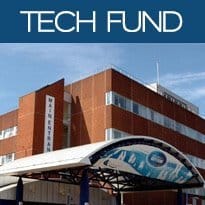Wirral aims for digital two years early
- 25 July 2014

The Wirral University Teaching Hospital NHS Foundation Trust is using funding from the first round of NHS England’s technology fund to move towards a “fully digital environment” by 2016.
The trust received £3.5m from the ‘Safer Hospitals, Safer Wards: Technology Fund’ and will use the money to develop a patient portal, roll-out mobile devices and share data with GPs.
Wirral will also replace further modules of its legacy system with a new electronic patient record. It began deploying Cerner Millennium in 2010, when it went live in A&E, and has switched-on five major implementation phases since.
Mark Blakeman, Wirral’s director of informatics, said the funding means the trust can continue its “vision of replacing our current healthcare IT system with a sophisticated integrated digital care record.
“This will not only provide great benefit to patient care, it will result in even greater efficiencies for our clinical staff who work on the front line.”
Wirral wants to use the tech fund money to extend its health economy shared record project, following the deployment of Cerner’s electronic clinical exchange platform, Health Information Exchange, and the Medical Interoperability Gateway.
The trust wants to share and receive more information with GPs, such as patient medications and discharge medications.
It will also use the money to develop a patient portal, which will give patients and carers access to a summary view of their hospital record and let them book and cancel appointments online.
“This additional funding from NHS England allows us to bring forward some of our more innovative projects and to expand the scope of these projects,” said Blakeman.
“We are aiming to provide a fully digital environment two years ahead of the NHS England target of 2018. This will put our trust at the forefront of European healthcare IT.”
It will also roll out “connected medical devices” such as nursing observation and vital signs monitoring, which will directly connect to the EPR.
As well as the software implementations the trust hopes the funding will help to ensure that clinicians have “optimal system workflows” to support clinical practice and that the functionality is developed to meet specialist areas’ requirements.
This includes incorporating ideas generated by users, patients and carers into the system.
“In order for the trust to continue to provide high quality and effective care for all, information must be able to flow securely in our hospitals allowing data to follow patients throughout their entire healthcare journey,” said Blakeman.




